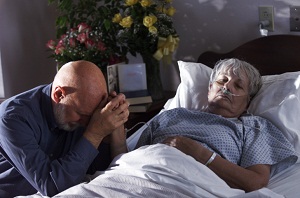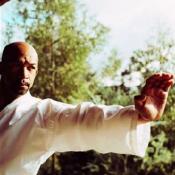 As I sat to write my end-of-the-year complementary and alternative medicine blog post, I questioned the wisdom of discussing prayer for healing, as prayer remains one of the most hotly debated CAM therapies. For many people, prayer is a meaningful part of their daily lives; for others, it may be engaged in more out of duty than beliefs. And for some, prayer is simply a practice in which other people engage.
As I sat to write my end-of-the-year complementary and alternative medicine blog post, I questioned the wisdom of discussing prayer for healing, as prayer remains one of the most hotly debated CAM therapies. For many people, prayer is a meaningful part of their daily lives; for others, it may be engaged in more out of duty than beliefs. And for some, prayer is simply a practice in which other people engage.
Regardless, according to a large-scale survey by the National Institutes of Health, approximately 43% of Americans say they pray to improve their health, and about 24% indicated asking others to pray on their behalf. In the scientific community, however, the topic of prayer can be as polarizing as many of the other issues and events that marked 2012.
What’s the Evidence?
The research evidence for whether intercessory prayer (prayer on behalf of another for the purpose of healing) can improve mood, heal wounds, or enhance other health-related outcomes has been subject to much scrutiny and harsh debate. The quality of the research has been variable, as have the results. There are also many who believe it is inappropriate to test whether prayer can affect change. Yet prayer for healing, specifically, remains one of the most commonly used CAM “techniques.”
Several prayer studies have found positive effects, whereas others have found prayer to make no difference with regard to health (or even be associated with slightly poorer outcomes). Many have pointed out, not incorrectly, the tendency for the prayer research to create more questions than it answers. Researchers in both the “pro” and “against” camps regarding prayer agree that one challenge in evaluating this type of intervention is that it is not possible to completely rule out whether those in the control or “no prayer” group have in fact also received prayers from loved ones or clergy during the study period. If those in the “no-intervention” group are prayed for, and prayer does have an effect, theoretically this would make it difficult or impossible to tell the difference between one group and another. Thus, even if prayer for others could help them heal, we would be unlikely to detect this effect in a research situation described above.
Of course, no study can answer whether there is, in fact, a God or other divine organizing principle; if He or She answers study-related or other prayers; or whether religious affiliation of the one praying has any impact on the outcome.
Why Pray, Then?
The question of whether prayer should be studied, or if it has any efficacy as a tool for healing, will not be answered here. Regardless of the scientific evidence available, people who pray will likely continue to do so for themselves and others. Prayer brings millions of people comfort, and helps them feel connected to others as well as to something greater than themselves. Thus, given the time of year, and especially in light of the events of recent months, it seems relevant and important to mention it here.
As someone who has engaged in research, I know that my questions may never be adequately answered by the data, and yet, as a human being, I admit that when I or someone I care about has been ill or experienced significant difficulty, I have very much appreciated and at times solicited prayers, healing intentions, and “good vibes.” Over the years, I have also worked with many medically ill children and adults, and I can say that prayer is very common in the hospital setting and elsewhere, even when it is not obvious.
Perhaps there is a difference between private prayer for oneself, a loved one, or for one’s community, as compared to prayer for a stranger identified only by a study ID number, at least with regard to the meaning it has for us. Although I am not a religious person, on occasion I have prayed for my clients, although I have never prayed with any of them. At these times, when I have prayed for or hoped on someone’s behalf, or tried to visualize a positive outcome, I have often felt a sense of connection with something greater than myself—whether this is evidence of the divine or simply a sense of knowing I am part of a caring community, or a benefit I receive simply from striving to do good in some way, I cannot say for certain. And at those times, I am not really sure that finding “proof” matters all that much anyway.
Whatever your beliefs, my wish for us all in the coming year is to treat each other with respect, kindness, and compassion. If you do pray, among other things, pray for peace.
Goodwill to all!
References:
- Davis, J. L. (2006). Can prayer heal? http://www.webmd.com/balance/features/can-prayer-heal
- Mind and body: Do music, imagery, touch, or prayer improve cardiac care? (2006). Harvard Men’s Health Watch; 11, 6-7. http://www.health.harvard.edu/newsletters/Harvard_Mens_Health_Watch/2006/December/Mind_and_body_Do_music_imagery_touch_or_prayer_improve_cardiac_care
- More than one-third of U.S. adults use complementary and alternative medicine, according to new government survey(2004). http://nccam.nih.gov/news/2004/052704.htm

The preceding article was solely written by the author named above. Any views and opinions expressed are not necessarily shared by GoodTherapy.org. Questions or concerns about the preceding article can be directed to the author or posted as a comment below.


 Can Complementary and Alternative Treatments Help with ADHD?
Can Complementary and Alternative Treatments Help with ADHD? Ten Complementary Therapies That Can Help Children
Ten Complementary Therapies That Can Help Children Can Energy Therapies Heal the Mind and Body?
Can Energy Therapies Heal the Mind and Body?

Please fill out all required fields to submit your message.
Invalid Email Address.
Please confirm that you are human.
Leave a Comment
By commenting you acknowledge acceptance of GoodTherapy.org's Terms and Conditions of Use.